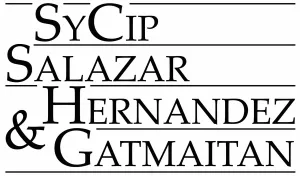- within Technology topic(s)
- in United States
- within Technology, Media, Telecoms, IT, Entertainment and Environment topic(s)
- with readers working within the Retail & Leisure industries
The Philippines continues to develop a fuller regulatory framework for artificial intelligence (AI) use. This is a brief round-up of legal initiatives and developments in local AI regulation.
Congress has yet to pass a general law focused on AI. Policy analysts view statutes on digital innovation as effectively promoting AI-enabled innovation and workforce readiness (e.g., Republic Act No. (RA) 11293 or the Philippine Innovation Act, and RA 11337 or the Innovation Startup Act (2019)), but these laws do not specifically regulate AI use. RA 11927 or the Philippine Digital Workforce Competitiveness Act (2022), which sets out policies for digital skills training and inclusive access, may be meaningful should local enterprises begin to consider the impact of migrating to automated systems on personnel.
Meanwhile, enterprises seeking to deploy or offer AI-driven services or products must look at general laws and certain sector specific issuances. These include:
- Data Privacy Act of 2012, which regulates the processing of
personal data, including their use in automated processes.
- National Privacy Commission (NPC) Advisory No. 2024-04 that provides guidance on application of personal data privacy laws and related rules and issuances in respect of data processing by AI systems
- Data processing systems operating in the Philippines and utilizing automated processes need to be registered with the NPC.
- The Philippine Constitution, the Civil Code, the Labor Code and other laws on labor, social, health, and human rights protections, which set out potentially relevant principles such as those against discrimination and abuse of right.
- Statutes relating to cybercrime such as the Cybercrime Prevention Act of 2012 and the Anti-online Sexual Abuse or Exploitation of Children Act that refer to the use of artificial intelligence to, among others, construct deepfake imagery in the context of producing or distributing sexual assault content.
- RA 11035 or The Balik Scientist Act which prioritizes emerging technologies, including AI, to promote innovation and knowledge transfer, and incentivizes Filipino scientists to engage in mentorship, training, lecture, research and development, technology transfer initiatives, and other similar endeavors.
On government policies focused on AI, the Department of Information
Communications and Technology has released the National
Cybersecurity Plan (NSCP) 2023-2028 that sets out strategies to
address security risks. The Department of Trade and Industry has
also proposed a National AI Strategy Roadmap (NAISR), which aims to
lay the foundation for the country's AI development. An updated
version, NAISR 2.0, was launched in 2024. As part of its
initiatives, the trade department has also established the Center
for AI Research (CAIR) to serve as an AI research hub.
Philippine lawmakers are eager to make a mark in this area. One of the most recent bills that have been filed in relation to AI is House Bill No. 5158 or the AI Development and Regulation Act, which has been currently referred to the Committee on Information and Communications Technology for consideration. This bill proposes to establish the principles for the development, application and use of AI systems, a "Bill of Rights" for Filipino data subjects, and a Philippine Council on AI, which will act as a policy-making and advisory body. The bill also provides for penalties or creation or use of AI that manipulates, exploits, or controls any person beyond his or her consciousness to materially distort his or her behavior in a manner that is likely to cause him or her or another person physical or psychological harm.
Another notable bill is House Bill No. 1484, or the Data-Driven Governance and AI Solutions Act, which seeks to enable the national government and local government units to adopt AI and data-driven systems for public planning, service delivery, and decision-making. It also aims to institutionalize multi-sectoral pilot projects, including: (i) traffic flow optimization using AI prediction models, (ii) disaster risk mapping and early warning systems, (iii) predictive analytics for education, health, and social services, (iv) digital twins for infrastructure and climate resilience, (v) chatbots or virtual assistants for frontline services, (vi) fraud detection in tax collection or procurement, and (vii) natural language processing for document management.
While several bills aim to promote AI adoption, there are also bills focused on regulating its use, particularly when employed to commit criminal or harmful acts. House Bill No. 2312, or the Anti-Deepfake Personality Rights Protection Act, penalizes the unauthorized creation, dissemination, or commercial exploitation of deepfakes and requires labeling synthetic content, with "deepfake" defined as any AI-generated or manipulated media that falsely depicts a person's appearance, voice, or actions as if they were real or authentic. Moreover, House Bill No. 5323, which seeks to amend the Anti-Bullying Act of 2013, expands the definition of bullying to include AI-generated or AI-assisted content and mandates that schools educate students, parents, and guardians on the risks and responsible use of AI tools.
Likely Directions
The trend of local policymakers and regulators is to be open to AI use but any general or comprehensive laws or rules on AI that will eventually be passed will likely follow a more protectionist approach, potentially similar to that of the EU's AI Act. A focus on the impact on employment can be expected.
The content of this article is intended to provide a general guide to the subject matter. Specialist advice should be sought about your specific circumstances.

